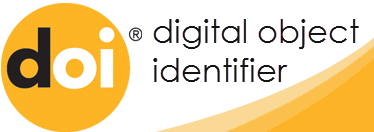ইসলামী অর্থব্যবস্থা মানবকল্যাণ ও টেকসই উন্নয়নের অনন্য পদ্ধতি : একটি পর্যালোচনা | Islamic Finance as a Unique Approach to Human Welfare and Sustainable Development : A Review
DOI:
https://doi.org/10.58666/iab.v19i74-75.248Keywords:
Islamic Finance, MaqÄá¹£id-al-Sharī’ah, Human Welfare, Development, Buying and Selling, ইসলামী অর্থব্যবস্থা, মাকাসিদুশ শরীয়াহ, মানবকল্যাণ, উন্নয়ন, ক্রয়-বিক্রয়Abstract
The global economy has a great contribution as the driving force of human civilization. Currently, there are four main types of economic systems in the world. For example, Islamic economy, Capitalist economy, Socialist economy and Mixed economy. Islamic economy stands in contrast to the conventional economy systems and has presented most effective methods and strategies for the welfare and sustainable development of humankind in the light of the guidance of the Qur’an and Sunnah. In this article, the multifaceted guidelines of Islamic economy for human welfare and sustainable development have been presented in a descriptive and analytical manner. This paper evidently demonstrates that in Islamic economy, the needs of people are prioritized and addressed and thus a continuous stream of welfare flows. Moreover, the author has also endeavored to discuss other vital aspects of Islamic economy namely, Zakat and Ushr, Qard-al-Hasanh, implementation of inheritance law and establishment of Bayt al-mal etc. Due to the proper implementation of these aspects, as the study argues and demonstrates, the financial system gains momentum and sustainable development is accelerated.
সারসংক্ষেপ : মানব সভ্যতার চালিকাশক্তি হিসেবে বিশ^ব্যাপী অর্থনীতির ব্যাপক অবদান রয়েছে। বর্তমানে পৃথিবীতে প্রধানত চার ধরনের অর্থনৈতিক ব্যবস্থা প্রচলিত রয়েছে যেমন, ইসলামী অর্থব্যবস্থা, পুঁজিবাদী বা ধনতান্ত্রিক অর্থব্যবস্থা, সমাজতান্ত্রিক অর্থব্যবস্থা এবং মিশ্র অর্থব্যবস্থা। ইসলামী অর্থব্যবস্থা প্রচলিত অর্থ ব্যবস্থাগুলোর বিপরীতে দাঁড়িয়ে কুরআন-সুন্নাহর নির্দেশনার আলোকে মানবজাতির জন্য কল্যাণকর ও টেকসই উন্নয়নের চূড়ান্ত পদ্ধতি ও কর্মকৌশল উপস্থাপন করেছে। অত্র প্রবন্ধে মানবকল্যাণ ও টেকসই উন্নয়নে ইসলামী অর্থব্যবস্থার বহুমুখী নির্দেশনাসমূহ বর্ণনা ও বিশ্লেষণ পদ্ধতিতে তুলে ধরা হয়েছে। যা থেকে প্রমাণিত হয়েছে, ইসলামী অর্থব্যবস্থায় মানুষের প্রয়োজনগুলো ক্রমানুসারে প্রাধান্য দিয়ে এর সমাধান করা হয় বলে ব্যাপকহারে কল্যাণের অবিরত ধারা প্রবাহিত হয়। তাছাড়া ইসলামী অর্থব্যবস্থার অন্যান্য গুরুত্বপূর্ণ বিষয়গুলোও এখানে প্রতিষ্ঠার প্রয়াস চালানো হয়। যেমন, যাকাত ও উশর, করযে হাসানা, মিরাসী আইনের বাস্তবায়ন ও বায়তুলমালের প্রতিষ্ঠা ইত্যাদি। এর ফলে অর্থব্যবস্থা গতিশীলতা অর্জন করে ও টেকসই উন্নয়ন ত্বরান্বিত হয়।
References
Al Qurʼān Al Karīm
ʻAbdul Mannān, Muḥammad. 2011. Islami Bankbabostha. Dhaka: Central Shariah Board of Islamic Banks of Bangladesh.
ʻAbdur Raḥīm, Muḥammad. 2006. Islami Shariater Utsha. Dhaka: Khairun Prokashoni
Al Ghazālī, Abū Ḥāmid Muḥammad. ND. Al Mustaṣfā. Al Qāhirah: Maktabah Al Jundī
Al Bukhārī, Abū ʻabd Allah Muḥammad Ibn Ismāʻīl. 2000. Al Adab Al Mufrad. Al Jubail: Dār Al Ṣadīq
Ahmed, Salehuddin. 2021. “Bangladesher Teksai Unnayan Paryalochana O Karaniyo” Kaler Kantho, Jun. 26. May 06, 2023. https://www.kalerkantho.com/online/national/2021/06/26/1047003
Abumoghli, Iyad. “The Islamic Principles on Sustainable Development.” EcoMENA, Aug.15, 2022. https://www.ecomena.org/islam-sustainable-development/
Al Māwardī, Abū Al Ḥasan ʻAlī Ibn Muḥammad. 1969. Al Aḥkām Al Sulṭāniyyah. Al Qāhirah: Maṭbaʻah ʻIīsā Al Bābī Al Ḥalabī.
Chapra, M. Umer. 2011. Islam O Arthonoitik Challenge. Translated By : Miah Muhammad Ayub, AKM Salehuddin, Khandker Rashedul Haque, Amanullah. Dhaka: Bangladesh Institute of Islamic Thought
- 2009. Islami Orthonitite bankbybostha o Mudranitir Ruprekha. Trans. by: Muhammad Shofif Hossain. Dhaka: Islamic Economics research Bureau
Faruk, Kazi Omar. 2010. Islami Banking tottow o Onushilon. Dhaka: Muktadesh Prokashoni
Habibur Rahman, Shah Muhammad. 2005. Islami Arthoniti: Nirbachito Probondho. Rajshahi: The Rajshahi Student’s welfare Foundation
Hornby, A S. 1995. Oxford Advanced Learner’s Dictionary, UK: Oxford University Press
Heydari, Morteza. 2014. ʻʻIslami Banking Bonam Procholito Banking : Mohamonda Uttor karjokromʼʼ Islami Banking Jan.2014, 28-33
Ibn Mājah, Abū ʻAbd Allah Muḥammad Ibn Yazīd. ND. Sunan Ibn Mājah. Edited by : Fuwād ʻAbd Al Bāqī. Al Qāhirah: Maṭbaʻah Dār Iḥyā Al kutub Al ʻArabiyyah
Khandakar, Mohammad Rahmatullah. 2015. Maqasid as- Shariah O Islamer Sowndarja. Dhaka: Muktadesh Prokashon
- 2015.ÒMaqasidas- Shariah : Manobkollayan, Unnayan O OdhikarÓ Islami Banking Sep.2015, 86-116.
- 2020. “Islami BankByabosthar Swondarja O Sreshthotto.”Bangladesh Barta (blog). Accessed May 10, 2023.https://bangladeshbarta.blogspot.com/2020/10/blog-post_76.html.
Muslim, Abū Al Ḥusain Muslim Ibn Al Ḥajjāj. 1991. Ṣaḥīḥ Muslim. Al Qāhirah: Dār Al Ḥadīth
Rahman, Atiur. 2014. Manobik Banking. Dhaka: Anyaprokash
R. E. Munn. 1990. ÔTowards Sustainable Development: An Environmental PerspectiveÕ. Edited by F. Archibugi and P. Nijkamp. Dordrecht: Kluwer Academic Publications
Schmidheiny, Stephan Ernst. 1992. Changing Course: A Global Business Perspective on Development and Environment. London: MIT Press
Shamsul Alam, A. Z. M. 2003. Islami Orthonitir Ruprekha. Dhaka: Islamic Foundation Bangladesh
ʻUthmānī, Muḥammad Taqī. 2007. Sud Nishiddho: Pakistan Supreme Court Er Oitihasik Ray. Translated by: Muhammad Sharif Hossain. Dhaka: Notun Safar Prokashani
Downloads
Published
Issue
Section
License
Copyright (c) 2023 Mohammad Nuruddin Kaosar

This work is licensed under a Creative Commons Attribution 4.0 International License.





